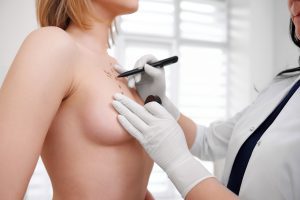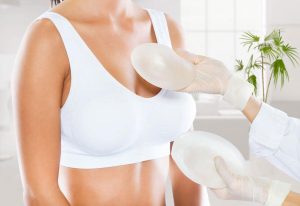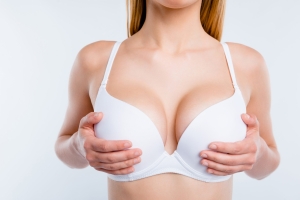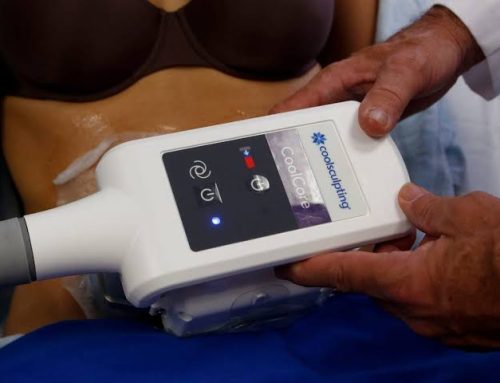Introduction
Embarking on the journey of breast reconstruction surgery is a deeply personal and empowering choice for many women. Whether it follows a mastectomy or addresses congenital issues, the decision to undergo this transformative procedure is driven by a desire to restore both physical form and emotional well-being.

What type of Breast reconstruction is the best?
Yes, breast reconstruction surgery is indeed possible without implants. There are primarily two approaches to breast reconstruction: autologous tissue reconstruction (flap reconstruction) and implant-based reconstruction.
1. Autologous Tissue Reconstruction (Flap Reconstruction):
In this approach, the surgeon uses the patient’s own tissue from other parts of the body to recreate the breast. Common donor sites include:
- Abdomen (TRAM Flap or DIEP Flap): Tissue, along with blood vessels, is taken from the abdominal area.
- Buttocks (SGAP or IGAP Flap): Tissue is taken from the upper or lower buttock.
- Thighs (TUG Flap): Tissue is taken from the inner thighs.
The chosen flap is then transferred to the chest and meticulously shaped to form a natural-looking breast. This method provides a more natural feel and avoids the use of implants.

2. Implant-Based Reconstruction:
Implant-based reconstruction involves the use of saline or silicone implants to rebuild the breast. The procedure typically includes the following steps:
- Tissue Expansion (Two-Stage): In the first stage, a tissue expander is placed beneath the skin and chest muscle. Over several weeks or months, the expander is gradually filled with saline to stretch the skin and create space for the implant.
- Implant Placement (Second Stage): Once the desired expansion is achieved, the tissue expander is replaced with a permanent implant.
- Direct-to-Implant (One-Stage): In some cases, especially when there is sufficient existing breast tissue, the permanent implant can be placed directly without the need for tissue expansion.
Who is a good candidate for Breast Reconstruction surgery?
A good candidate for breast reconstruction surgery typically includes individuals who have undergone a mastectomy or have congenital conditions affecting breast development. Here are key considerations:
1. Post-Mastectomy Patients:
– Women who have undergone mastectomy as part of breast cancer treatment are prime candidates. Breast reconstruction helps restore a sense of normalcy and femininity after the removal of one or both breasts.
2. Congenital or Developmental Concerns:
– Individuals with congenital conditions affecting breast development or those who have experienced developmental issues leading to breast asymmetry may opt for reconstruction. This includes cases where breasts may not have developed fully or are significantly uneven.
3. Psychological Well-Being:
– Candidates often express a desire to enhance their psychological well-being. Breast reconstruction can contribute to a positive body image, self-esteem, and emotional healing, especially after the challenges of cancer diagnosis and treatment.
4. Medically Fit Individuals:
– Generally, candidates should be in good overall health to undergo surgery. Factors such as age, overall health, and any existing medical conditions will be considered to ensure a safe surgical experience.
5. Realistic Expectations:
– Having realistic expectations about the outcomes of the procedure is crucial. A thorough consultation with a plastic surgeon helps individuals understand the potential results, including scarring and the recovery process.
6. Desire for Symmetry:
– Candidates seeking breast reconstruction often desire symmetry between the reconstructed breast and the remaining natural breast. Surgeons aim to achieve a balanced and aesthetically pleasing result.
7. Positive Attitude and Support System:
– A positive attitude towards the procedure and a strong support system can contribute to a smoother recovery. Emotional support from family and friends is valuable during the entire process.
Breast reconstruction is a deeply personal choice, and the decision to undergo the procedure should align with the individual’s goals, values, and overall well-being. A consultation with a skilled and experienced plastic surgeon is essential to assess individual candidacy, discuss available options, and tailor the approach to the unique needs of each patient.

Can you get Breast Reconstruction without implants?
Yes, breast reconstruction surgery is indeed possible without implants. There are primarily two approaches to breast reconstruction: autologous tissue reconstruction (flap reconstruction) and implant-based reconstruction.
Conclusion
In conclusion, breast reconstruction surgery represents a transformative journey, offering not just physical restoration but a profound impact on emotional well-being. Whether chosen after mastectomy or to address congenital concerns, this procedure empowers individuals to rediscover wholeness and confidence. With options like autologous tissue reconstruction and implant-based approaches, each tailored to unique needs, the path to reconstruction is deeply personal. By embracing this empowering choice and navigating the process with realistic expectations, individuals embark on a journey that goes beyond aesthetics – it is a journey toward self-affirmation, resilience, and the restoration of a positive body image. Breast reconstruction is not merely a surgical procedure; it is a celebration of strength, healing, and the pursuit of a fulfilling life beyond breast cancer or developmental challenges. The support of a skilled plastic surgeon, a positive mindset, and a strong support system contribute to the success of this transformative experience, marking the beginning of a new chapter in one’s life with restored beauty and self-assurance.
Disclaimer: The content on this blog is intended for general informational purposes only. It is not a substitute for professional medical advice, diagnosis, or treatment. Always consult qualified healthcare providers for personalized advice. Information regarding plastic surgery, dental treatment, hair transplant, and other medical procedures is educational and not a guarantee of results. We do not assume liability for actions taken based on blog content. Medical knowledge evolves; verify information and consult professionals. External links do not imply endorsement. By using this blog, you agree to these terms.










